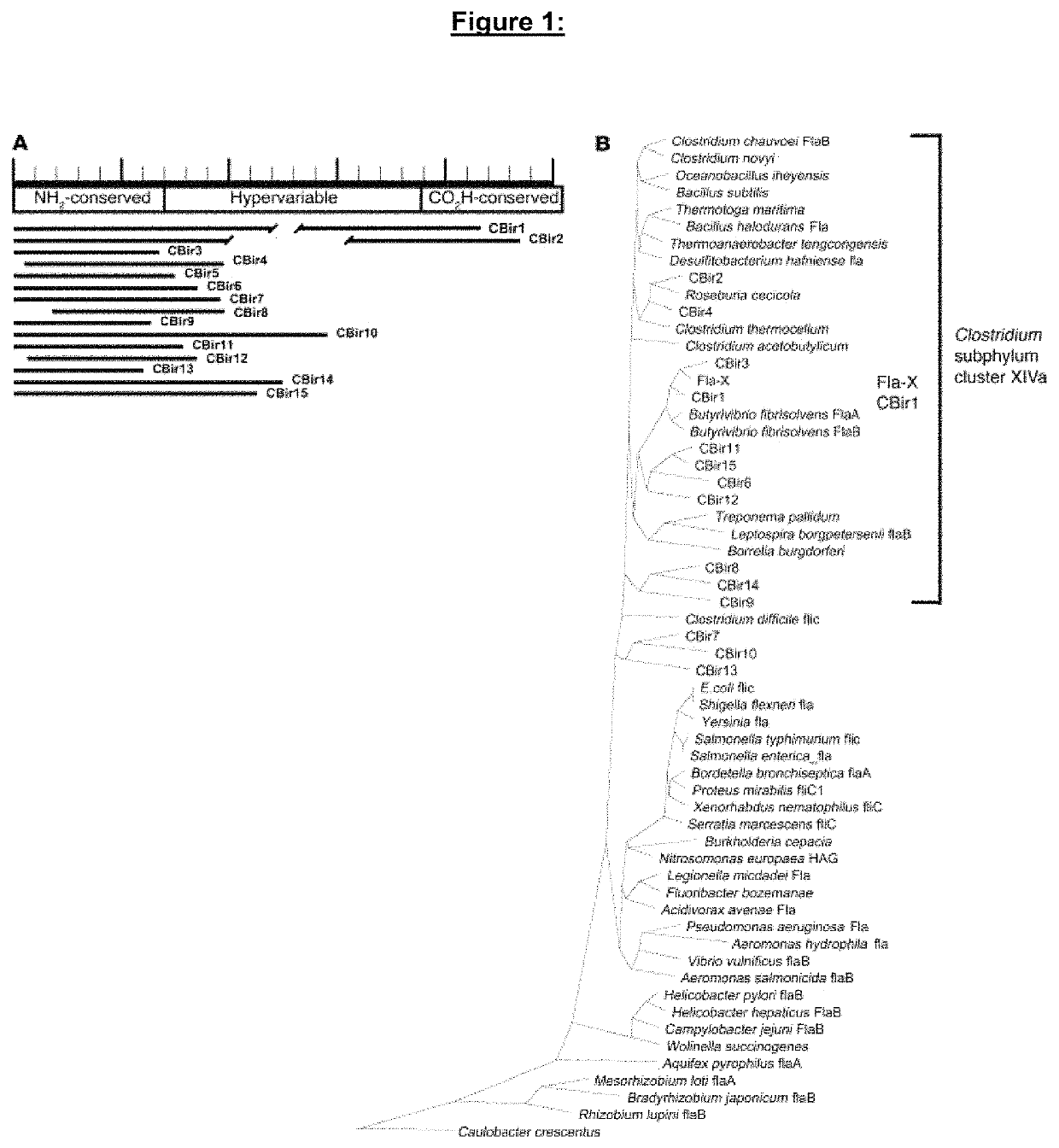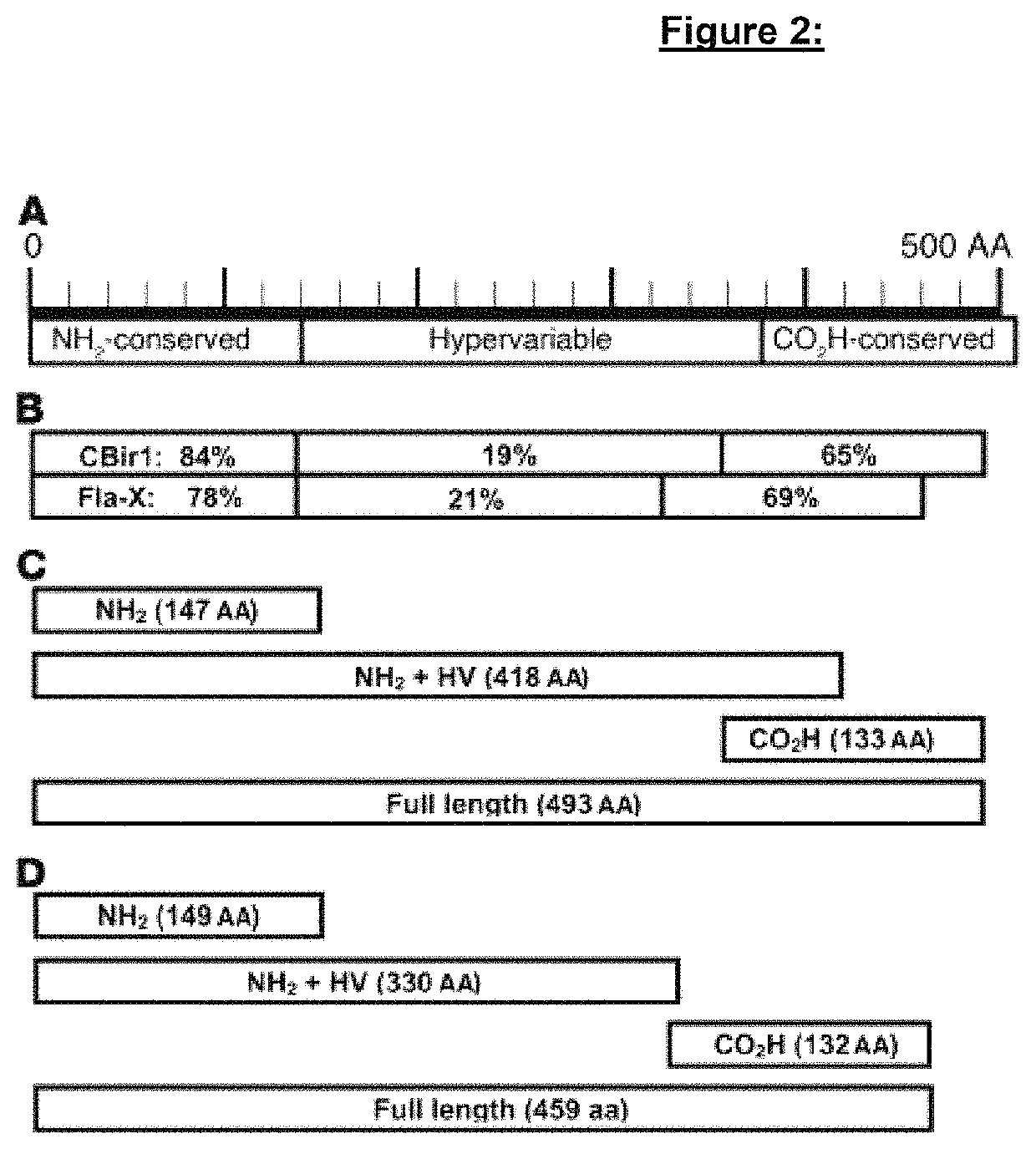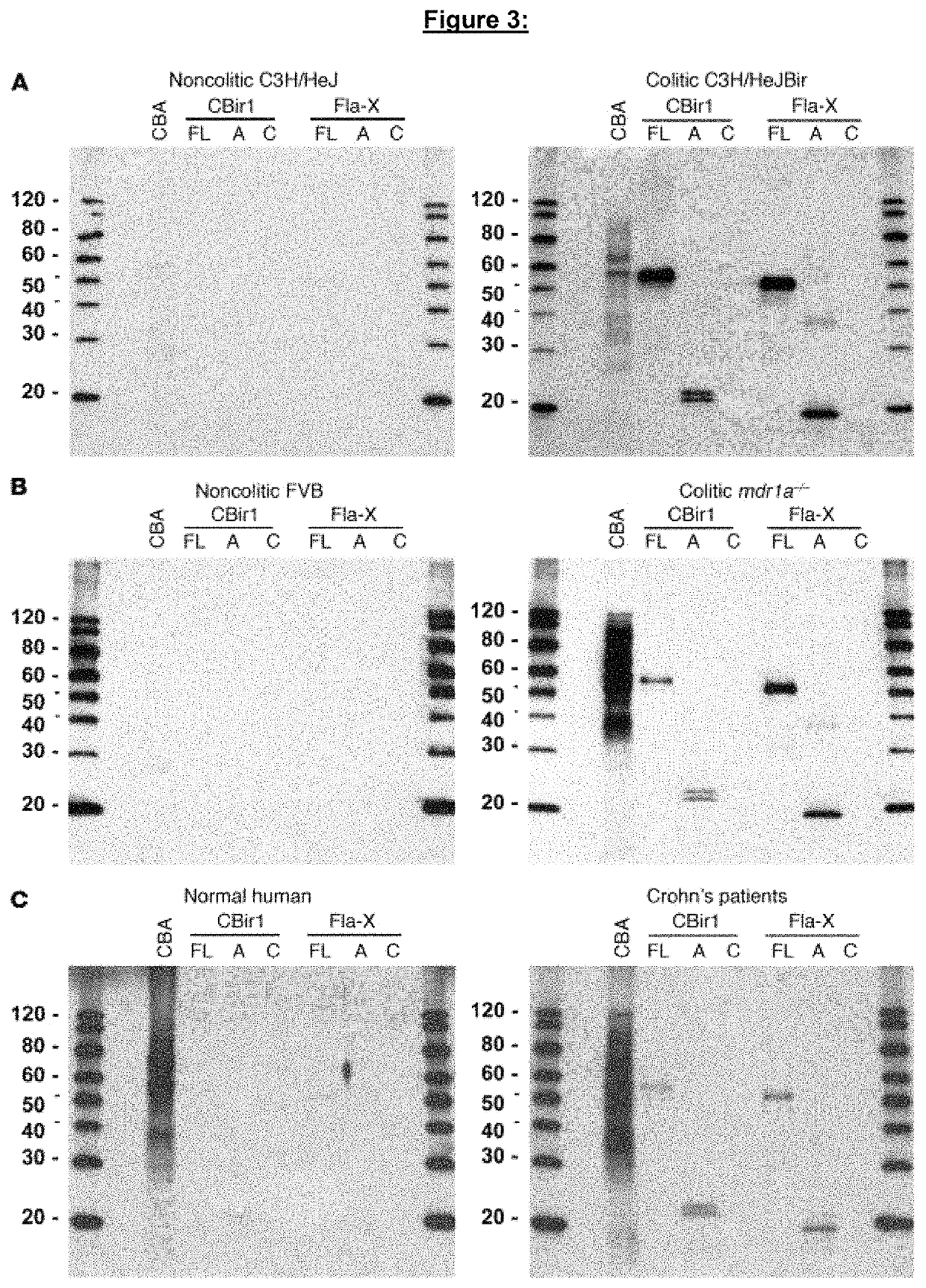Methods of using genetic variants for the diagnosis and treatment of inflammatory bowel disease
a technology of inflammatory bowel disease and genetic variants, which is applied in the field of methods for diagnosing and treating inflammatory bowel disease, can solve the problems that the complex intestinal microflora has posed a significant challenge in their identification, and achieve the effects of reducing the number of protective variants, reducing susceptibility, and increasing susceptibility
- Summary
- Abstract
- Description
- Claims
- Application Information
AI Technical Summary
Benefits of technology
Problems solved by technology
Method used
Image
Examples
example 1
[0325]Chronic intestinal inflammation, as seen in inflammatory bowel disease (IBD), results from an aberrant and poorly understood mucosal immune response to the microbiota of the gastrointestinal tract in genetically susceptible individuals. Serological expression cloning to identify commensal bacterial proteins that could contribute to the pathogenesis of IBD was used. The dominant antigens identified were flagellins, molecules known to activate innate immunity via Toll-like receptor 5 (TLR5), and critical targets of the acquired immune system in host defense. Multiple strains of colitic mice had elevated serum anti-flagellin IgG2a responses and Th1 T cell responses to flagellin. In addition, flagellin-specific CD4 T cells induced severe colitis when adoptively transferred into naive SCID mice. Serum IgG to these flagellins, but not to the dissimilar Salmonella muenchen flagellin, was elevated in patients with Crohn's disease, but not in patients with ulcerative colitis or in cont...
example 2
[0380]The inventors performed a genome-wide association study testing autosomal single nucleotide polymorphisms (SNPs) on the Illumina HumanHap300 Genotyping BeadChip. Based on these studies, the inventors found single nucleotide polymorphisms (SNPs) and haplotypes that are associated with increased or decreased risk for inflammatory bowel disease, including but not limited to CD and UC. These SNPs and haplotypes are suitable for genetic testing to identify at risk individuals and those with increased risk for complications associated with serum expression of Anti-Saccharomyces cerevisiae antibody, and antibodies to I2, OmpC, and Cbir. The detection of protective and risk SNPs and / or haplotypes may be used to identify at risk individuals, predict disease course and suggest the right therapy for individual patients. Additionally, the inventors have found both protective and risk allelic variants for Crohn's Disease and Ulcerative Colitis.
[0381]As disclosed herein, the inventors exami...
example 3
Increased Immune Reactivity Predicts Aggressive Complicating Crohn's Disease in Children
[0413]Crohn's disease (CD) is a heterogeneous disorder characterized by diverse clinical phenotypes (inflammatory, fibrostenosing [FS], internal penetrating [IP]) that appear to be influenced by genetic and immune factors. Children frequently manifest an aggressive disease course, and the ability to identify those at risk for complicated disease at diagnosis would be invaluable in guiding initial therapy.
[0414]The inventors examined the association of serological immune responses and CARD15 with CD phenotype in a large well-characterized pediatric collaborative cohort. Sera were collected from 797 prospectively followed pediatric CD cases and tested for immune responses to microbial antigens: anti-Cbir1 (flagellin), anti-outer membrane protein C (anti-OmpC) and anti-Saccharomyces-cerevisiae (ASCA) using ELISA. Genotyping (TaqmanMGB) was performed for 3 CD-associated variants of CARD15 (SNPs 8, 12...
PUM
| Property | Measurement | Unit |
|---|---|---|
| temperature | aaaaa | aaaaa |
| temperature | aaaaa | aaaaa |
| temperature | aaaaa | aaaaa |
Abstract
Description
Claims
Application Information
 Login to View More
Login to View More - R&D
- Intellectual Property
- Life Sciences
- Materials
- Tech Scout
- Unparalleled Data Quality
- Higher Quality Content
- 60% Fewer Hallucinations
Browse by: Latest US Patents, China's latest patents, Technical Efficacy Thesaurus, Application Domain, Technology Topic, Popular Technical Reports.
© 2025 PatSnap. All rights reserved.Legal|Privacy policy|Modern Slavery Act Transparency Statement|Sitemap|About US| Contact US: help@patsnap.com



